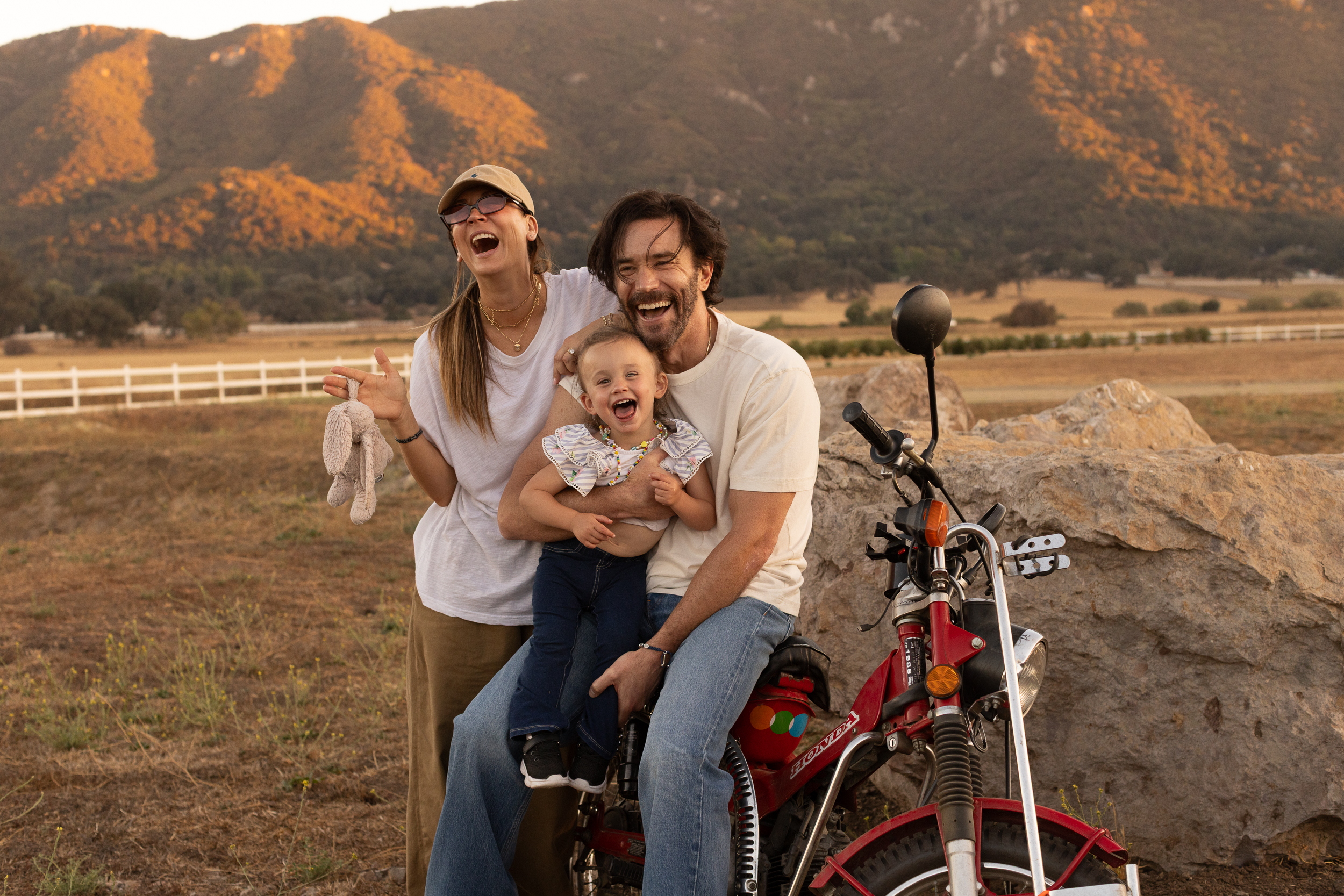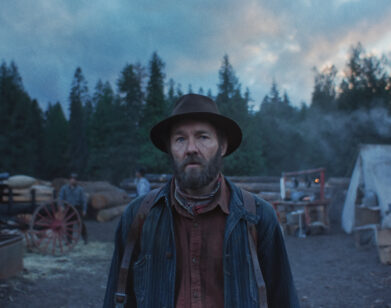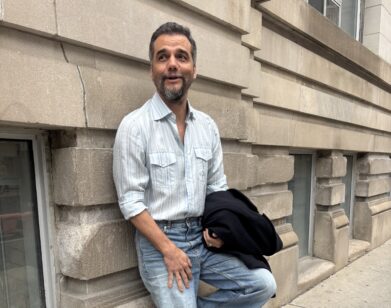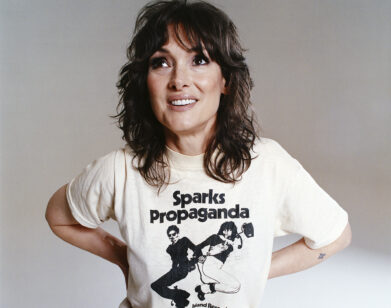ACTOR
Tom Pelphrey Tells Gary Oldman Why Task Is Once in a Lifetime
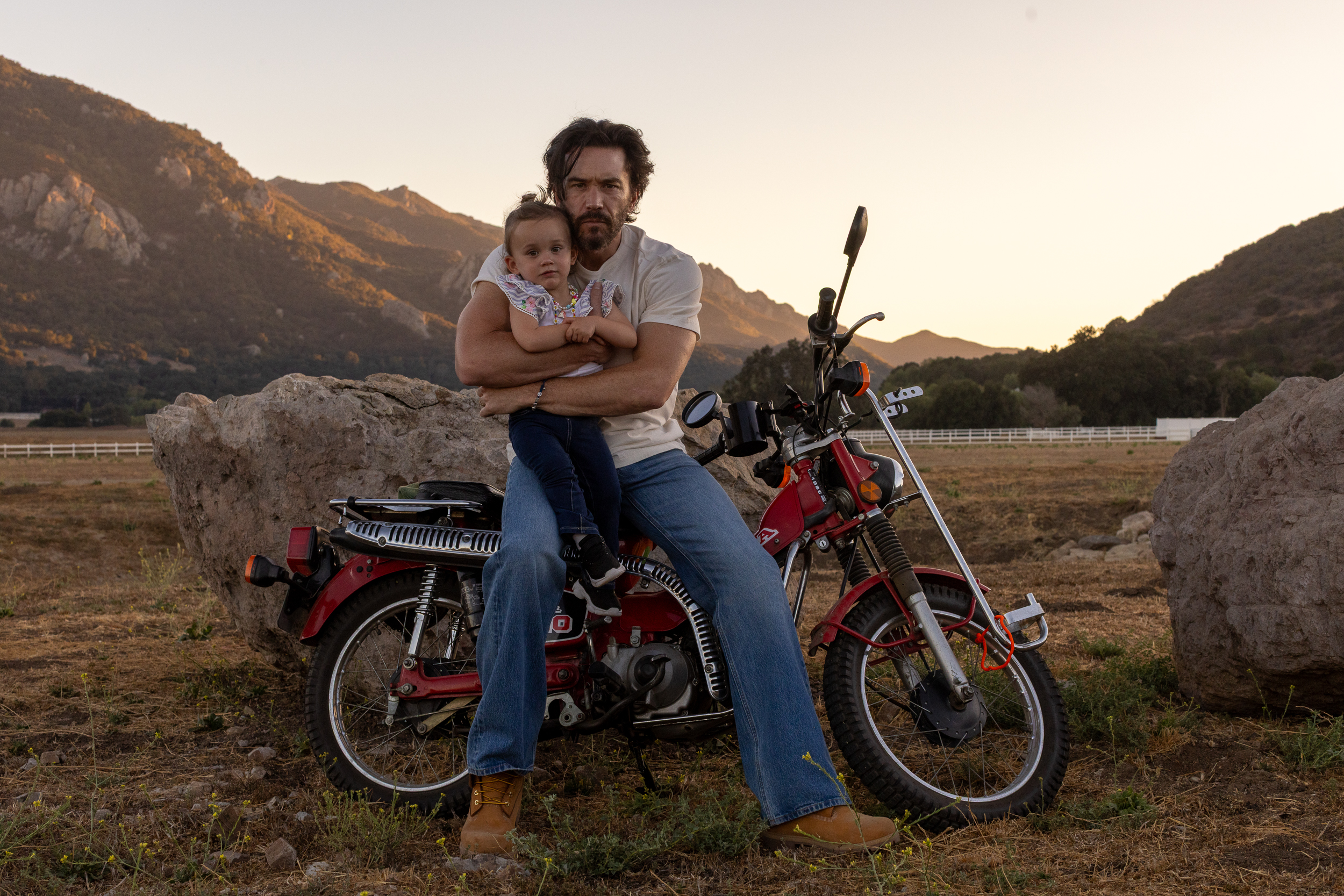
Tom Pelphrey, photographed by Myles Pettengill.
For most of his career, Tom Pelphrey carved out a reputation as an actor who brought soul to supporting characters. But it was his devastating turn as the bipolar Ben Davis in Ozark that announced him as the kind of performer who can tilt an entire scene in his direction. Now, with Task, HBO’s new cat-and-mouse thriller from Mare of Easttown’s Brad Ingelsby, he’s once again disappearing into a damaged man. As Robbie Prendergrast, a sanitation worker who moonlights as an armed robber and catches the eye of an FBI agent played by Mark Ruffalo, Pelphrey is seizing the kind of role that doesn’t come along often. That sense of luck, and how to make it count, was on his mind when he called up his Mank costar and personal hero Gary Oldman for a conversation about the precarity and preciousness of what they do.
———
TOM PELPHREY: How are you?
GARY OLDMAN: I’m good. I haven’t seen you for a while.
PELPHREY: I know, brother. It’s so good to see your face.
OLDMAN: We just had an earthquake here.
PELPHREY: Really?
OLDMAN: Yeah. It was in Banning, which is very close. It wasn’t big but my building creaked.
PELPHREY: It’s something to get used to. When I first moved out here and that started happening at night, it was very disorienting. You feel like you shouldn’t stay in your bed.
OLDMAN: The last big one we had, I was night shooting on Murder in the First, which I nicknamed “Murder in the Earth.”
PELPHREY: Because of the earthquake?
OLDMAN: The whole freeway came down. We were in the epicenter. It was an extraordinary experience. And then we had a 5.8 aftershock, and all the water was sloshing out of the pool, and you could see downtown, it was like moving. It was the weirdest thing. Then there were so many aftershocks that you didn’t even bother. The house would shake and you’d just stay in bed. Then you get phantom earthquakes afterwards. A big truck will go by and the house will shake a bit and you think you’re having one.
PELPHREY: Yeah.
OLDMAN: I love California and everything it can offer, but about 50 minutes ago we got a reminder.
PELPHREY: Where I come from there’s no earthquakes. We don’t have that shit on the East Coast.
OLDMAN: Where are you speaking from now?
PELPHREY: I’m in California, at home.
OLDMAN: Lovely. How’s Kaley [Cuoco, Pelphrey’s fiancée]?
PELPHREY: She’s great, she sends her love.
OLDMAN: Let me talk about new work and then we can talk about a bit of old work, if that’s alright? So you’ve just finished this project?
PELPHREY: Yeah. We finished filming Task about a year ago, almost exactly.
OLDMAN: Good experience?
PELPHREY: One of the best. It was one of those experiences where the total was greater than the sum of the parts. It seemed like a lot of people had come from certain projects where they maybe learned some lessons or felt a certain way, and everybody was coming into Task with a real spirit of desiring to have a positive collaboration. The entire thing from beginning to end had a very special, positive vibe.
OLDMAN: Good. I’m much older than you, Tom. There was an ambition or anxiety when I was younger—neurosis probably—that you would always worry about the end product, which is natural. You want to put your baby in the world and you want everybody to say, “Oh god, it’s gorgeous.” And that doesn’t always happen. But I found that as I’ve gotten older, it’s the experience and the journey of doing it with the people, that’s the salts and minerals of the thing. No one goes into a project to have it fail. It just sometimes does.
PELPHREY: I know.
OLDMAN: No one sets out to make a bad film. The same amount of work and energy goes into making a bad film as it does a good film. It’s this crazy chemistry, this alchemy of ones and zeros.
PELPHREY: I know. It is never taken for granted. In fact, my head space is always braced for the worst, and then you get pleasantly surprised. So you said all that, this binary, this alchemy, and I agree, but one thing I knew for sure when I started Task was I read the first few scripts and went, “Whoa, this is incredible. All we could do is fuck this up.” Credit to Brad Ingelsby, who is a very special writer. I don’t want to get you in trouble, but I’ll ask anyway. Have you ever had a script that blew you away, that you go, “All we could do is fuck this up?” And have you ever had it turn out where somehow it feels like you missed something?
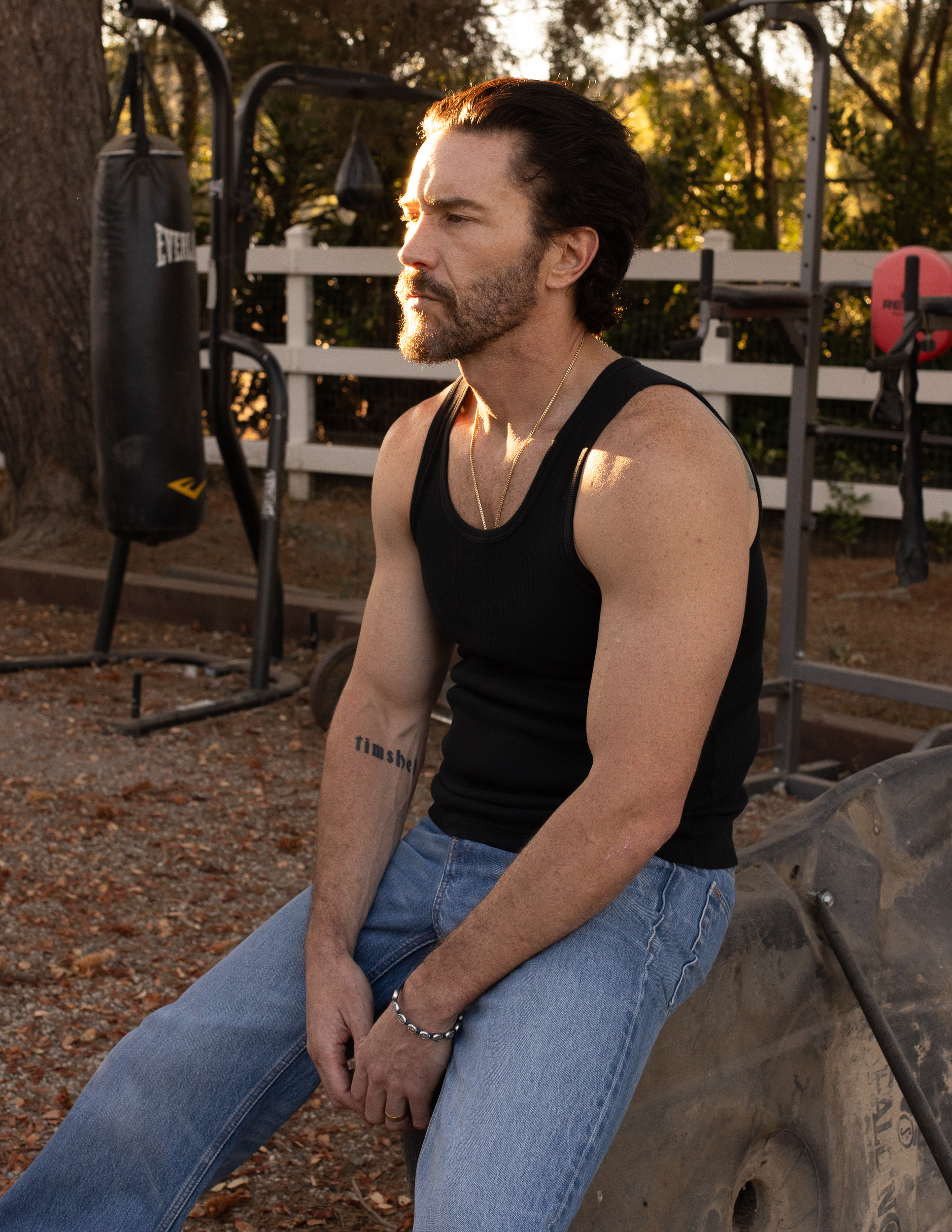
OLDMAN: All the time.
PELPHREY: Really?
OLDMAN: Yeah. Not that I’ve read the sort of scripts you’re talking about, or the sort of writing you are talking about, it’s few and far between. But yeah, I’ve done some things where, in your words, we fucked it up. I know we’ve touched on this over the time, but you need good writing. You immediately recognize something very special.
PELPHREY: Yeah.
OLDMAN: Sometimes the end result is a little disappointing. I was recently doing a little bit of publicity for Slow Horses, and I was chatting with Jonathan Pryce, and he had played King Lear at the Almeida Theatre in London a few years back, and I had missed it. I stumbled on an article about it, and when I saw him, I said, “You played King Lear. Is it the monster that they all talk about?” And he said, “No, actually, I really enjoyed it. Also, you get a nap because when they do the blinding of Gloucester, you get a break. You can have a little sleep in there.”
PELPHREY: Of course, only somebody like him would be cool enough to take a nap backstage in the middle of King Lear.
OLDMAN: But he loved it and really enjoyed it. So let me ask you about some older work. I want to talk about a favorite series of mine, Ozark, which I thought was tremendous. The casting, the playing of it. I think it was a Golden Globe thing, but I ran into Jason [Bateman] and just made a beeline for him. But your character—is it Ben?
PELPHREY: Yeah.
OLDMAN: That mesmerizing scene of you in the back of that taxi. I wrote to you and said, “What a beautiful piece of acting.”
PELPHREY: I’ll never forget it.
OLDMAN: We don’t need to get into the weeds of what people refer to as the “process,” but I’m intrigued to know your prep and the building up to doing that scene.
PELPHREY: First of all, I was very fortunate. I had the material for probably six weeks before we had to film it, which is a real boon.
OLDMAN: I’m a big believer that it’s not how well you know something, it’s how long you’ve known it.
PELPHREY: Exactly. You probably don’t encounter this anymore, but sometimes material is withheld. But with Ozark, I had the most beautiful piece of writing, and I had it early. So while we were filming and I was having to prepare for those scenes, I made time with that text. Then you show up on the day and we do it 15 times in a row every time, straight through. I could have done it all day, and it was a joy to do. It was so much fun to get there and say beautiful words that took you where they wanted you to go if you let them.
OLDMAN: You actually hit on something because I recently went back on stage and did Krapp’s Last Tape. There’s this monologue, and I had a year to work on it. I thought, “I know it. When I get out there, I will feel the energy of the audience, which is different every night, and let’s see where it takes me.”
PELPHREY: I want to ask you—and this is a really special observation I got to have. It was one that was both beautiful and, if I’m being honest, intimidating. It was while working with you on Mank. From the beginning, I had no idea what it would be like to meet Gary Oldman. I literally had a poster of you on my wall as a teenager.
OLDMAN: [Laughs] Right.
PELPHREY: Took it to college, you and Sean Penn in State of Grace. I think you knew what everybody wanted, you did it with a lot of class and taste, and it was really beautiful to watch. You made the set a very happy place. When the cameras would start rolling, and I was in the scene with you, I couldn’t believe how crackly your energy becomes. You’re so in the moment that I would have the experience once or twice of like, “Tom, be in the scene with Gary. You can’t watch him act.”
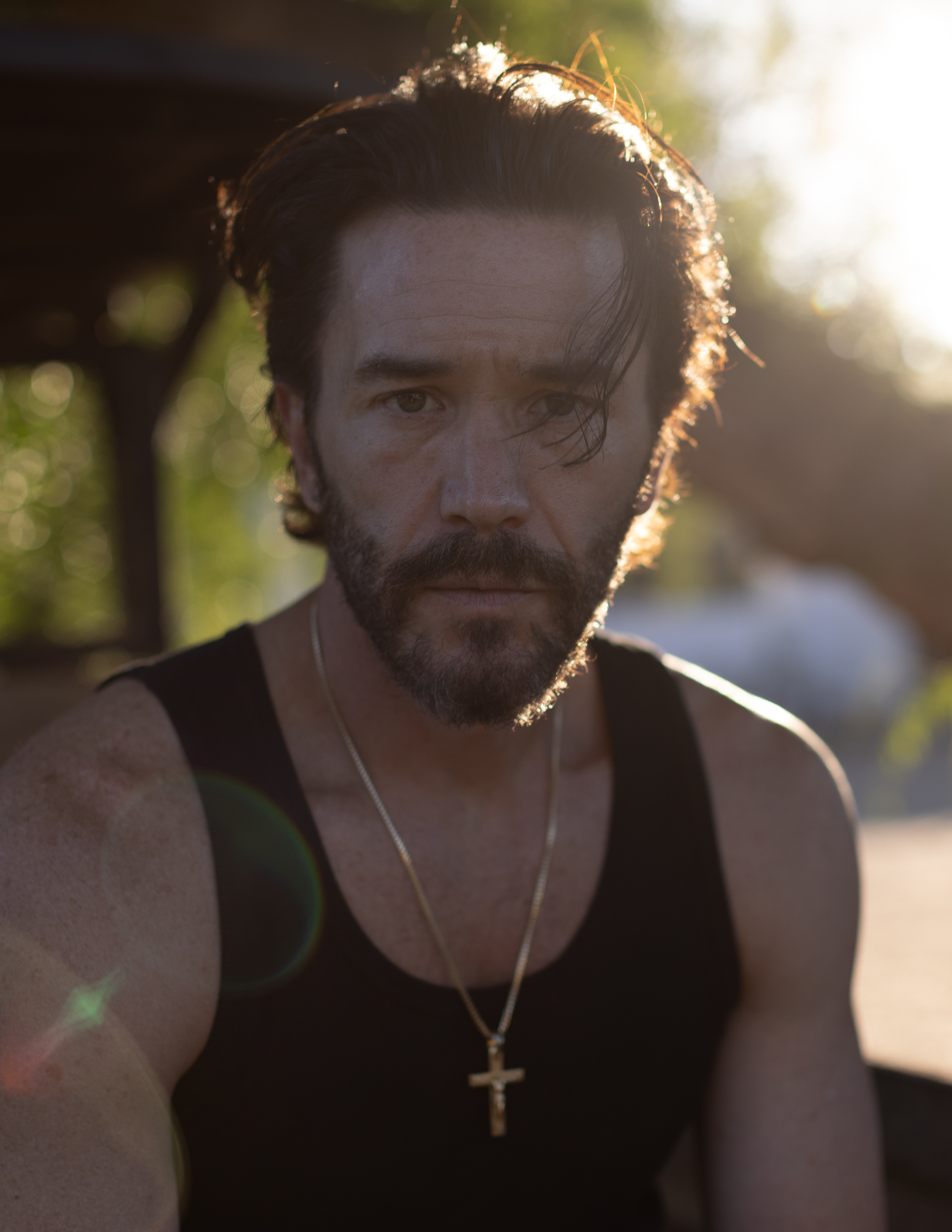
OLDMAN: That’s very kind of you. I’d work with David again in a heartbeat. You enjoyed it, didn’t you?
PELPHREY: Oh, yeah.
OLDMAN: For the most part I did. A couple of rough days, but—
PELPHREY: Listen, you were carrying the entire fucking movie, man. It was an epic film. It’s so dense in meaning, verbose. There were so many angles at which it was complicated. It was a period piece. You’re playing a real person and you’re in every scene. You had to put in a Herculean effort. I’m not surprised you had some days that were hard.
OLDMAN: We met in David’s office, didn’t we? You had to fly into California.
PELPHREY: I flew because I read with David for it on Zoom. We spent 90 minutes, just me and him reading. The whole time he’s like, “Love him.” Then I get a call and they’re like, “I think they’re going to start casting all over again. He thinks you’re amazing, but there’s something missing.” In my mind, I know immediately what it is. I’ve got to be there. How the fuck am I supposed to act over a computer? I called and said, “Could you please ask him if I could get there on Saturday, then could I come see him in person?” And he said yes. You said yes. I got on a fucking plane and I drove straight to David’s office and met fucking Gary Oldman and David Fincher at the same time. It’s like, “If I fuck this up, then I shouldn’t be doing any of this.” You get a chance to work with the best actors, you’re going to be better if you just fucking listen.
OLDMAN: Well, he cast you the moment you walked out the door. I looked at David and he looked at me and he went, “That’s the guy, isn’t it?”
PELPHREY: It was incredible.
OLDMAN: This is a funny profession because aside from talent or an intuition or a natural ability or whatever you want to call it, I have had diabolically good luck.
PELPHREY: Yeah.
OLDMAN: There are people that are not actors who I think should be actors. They’re extraordinarily talented and it just never went that way. And then there’s actors who I know are very good, and they can’t get it for whatever reason. It’s a mystery. As you know, years ago, we were always in the room with people. Directors would fly to New York to meet New York actors.
PELPHREY: Wow.
OLDMAN: That was a common thing when casting. It’s a weird thing that had you not pushed to meet him in person, as good as you are, you might not have tipped the scale.
PELPHREY: I would’ve been done.
OLDMAN: I suppose what I’m trying to say is how precarious it is between getting a gig and not getting a gig. The space between the two is sometimes like fucking dental floss.
PELPHREY: I reflect on that all the time. There is such an element of good luck, and I’m so grateful for all the struggling and failing a lot early in my career, not getting the result. I’m lucky to be here.
OLDMAN: That is vital, that energy, and it’s as vital as all the other stuff. If the work should just speak for itself, why do we have to campaign? Why can’t they just watch the movie and vote? When I did Sid and Nancy, I did a press junket and no one had warned me, so I thought it was a one-off. I didn’t realize you did it for every film.
PELPHREY: How long were you there?
OLDMAN: They flew us to New York and that was kind of fun. I spoke to a couple of newspapers and I was so naive and young that I answered every question. I was like a motormouth. I could have said, “Not going there. Next question.” But I was just this young kid full of piss and vinegar. Then it dawned on me, “You have to do this for every bloody movie!”
PELPHREY: When you talk about being young and maybe sharing personal things in interviews, did you feel like that came back to bite you in a way? Did that make you feel self-conscious or was it just that, “I can’t run out the whole dog and pony show every time I have to do this?”
OLDMAN: I just didn’t know. And there’s things I said that are not controversial but it’s—
PELPHREY: It’s vulnerable to share anything personal.
OLDMAN: Yeah, sometimes a bit dirty. Over the years, I’ve given some interviews where I’ve just felt like, “Oh, I need a shower.”
PELPHREY: I’ve had that feeling a fucking million times.
OLDMAN: It does help when you feel that the work is good and then you want to promote it. It looks like HBO is thrilled with this new show, yeah?
PELPHREY: They seem very happy. I have to trick myself into some of this stuff. Today with you is so special to me and because I love talking to you, and it feels easy to have a conversation with you. But I started thinking, because I get a little self-conscious and a little anxious sometimes with the press stuff, “Oh, but it’s not about me. I just get to be a representative of those 200 people that I spent six months with and it’s about them.”
OLDMAN: Well, the thing is bigger than you.
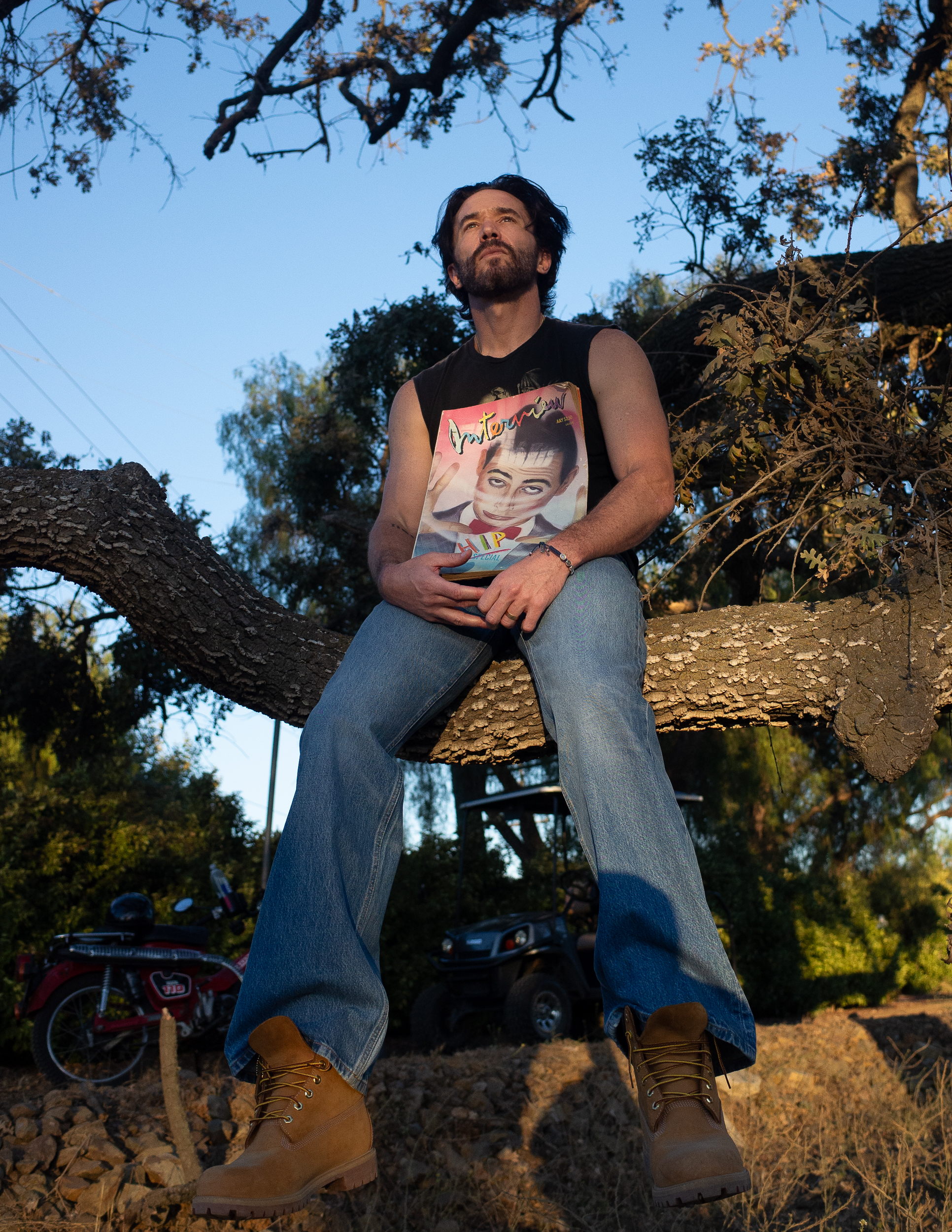
PELPHREY: A hundred times bigger than me. I love everyone that was involved. The work that showed up on the screen is incredible.
OLDMAN: What’s next?
PELPHREY: We’ll see. I was not in a rush to get back out there. Kaley just finished a job and we try our best to switch. I’m so grateful for these amazing opportunities when they happen, but for the most part don’t feel a need or desire to constantly work just to work.
OLDMAN: It’s sometimes hard to keep your dignity as an actor. I’ve been with my agent now for 11 or 12 years, but I jumped around over the years. Then when I left CAA, they said, “What happened? Why are you leaving?” I said, “Why am I leaving? I haven’t worked for 23 months.” There were low times and I’ve done some things that wouldn’t necessarily be on radar because you’ve got to live. You’ve got to put the kids in school, you’ve got to put food on the table. Particularly for an actor, if you’ve got that opportunity where you’re comfortable enough where you can say, “I don’t need to work, or that script’s not great, I’m going to pass.” You could wait for that one to come along. And sometimes that one doesn’t come along.
PELPHREY: I’ve done a million things to pay. For years, and for most of my adult life, acting was paycheck to paycheck. I’ve had this conversation with my agent. It’s like, “What is success?” For me, it’s the ability to have choice.
OLDMAN: Also, you’re at a point in your life where you’ve got Kaley, you’ve got Matilda [Pelphrey’s daughter], you’re successful.
PELPHREY: Oh, amen. That’s the thing, meeting Kaley, I was almost 40, and by the time Matilda was born, I was. At 35, I still had so much to prove. And now as a man, it’s so beautiful to have this family, and I want to spend time with them.
OLDMAN: Sure.
PELPHREY: I’m also in a fortunate position because I know if daddy doesn’t work, mommy’s not going to let the baby starve. You know what I’m saying? But I also want to say to anybody still reading this at this point, that you always seem to not fully know what you are to so many people. In my experience you have a real humility. You’re every actor’s favorite actor. As a young actor, you’ll watch these men and women do anything because you’re going to learn. I’ll never forget going to the movie theater in college, watching Hannibal, and then I get to the end of the movie and the credits run. I was like, “Gary Oldman? Where the fuck was Gary Oldman?”
OLDMAN: It’s an interesting story behind that, because oddly enough, it’s one of the few things that I chased. I heard on the grapevine that Ridley [Scott] was doing it, but he hadn’t cast Mason Verger. I was thinking at one time about doing it as an electronic, like a puppet, because he had no eyelids. I don’t know how I got his number, but I called him directly and I remember we had a conversation for about half an hour. And at the end of it, he said, “Well, my people will call your people and we’ll sort something out.” I called Doug, my manager, and said, “I think Ridley has just literally offered me the job over the phone.” That’s weird also because when I met his brother, Tony for True Romance he said, “I don’t want to talk to you about the plot and all of that. This character, he’s a pimp. He’s white but he thinks he’s black.” And I said, “I’ll do it.” It was [Quentin] Tarantino, so I thought, “Well, it can’t be that bad.” So it was funny with both brothers in a way, it was a very easy thing. They didn’t pay me, which was fine, because I didn’t do it for the money, so I just took the credit in the crawl at the end.
PELPHREY: Oh, my god. Nobody tells a fucking better story than you do. It is such a treat. I would be remiss not to get sentimental or sappy, but it’s wild beyond my imagination to get to sit here and have a conversation about work with one of my heroes.
OLDMAN: Oh, Tom. You’re so lovely.
